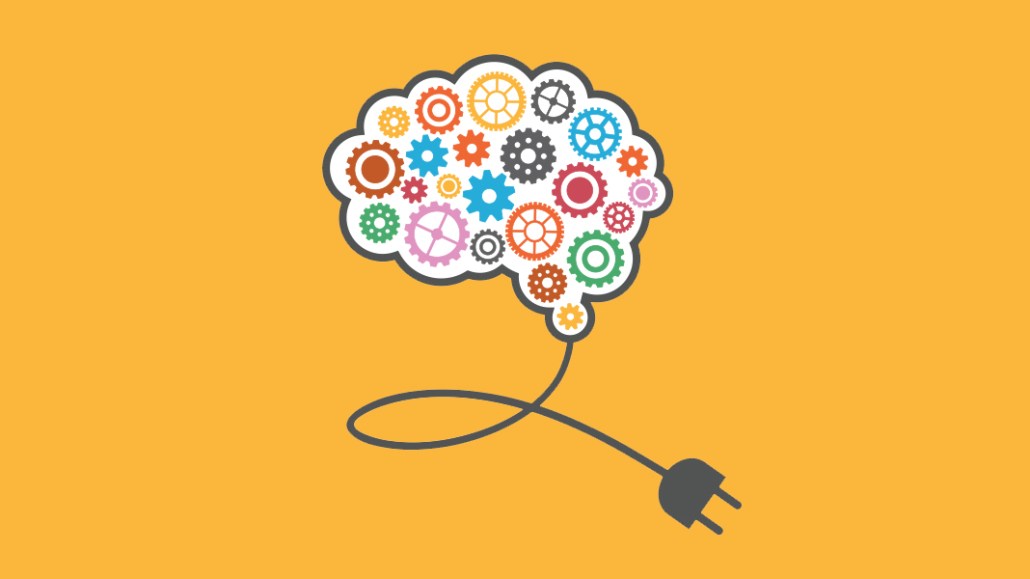Secure your place at the Digiday Media Buying Summit in Nashville, March 2-4


The duopoly has gobbled up artificial intelligence startups, and it’s hungry for more.
Research released earlier this month by CB Insights found it acquired 34 AI startups in the first quarter of 2017, which more than doubled the total acquired during the same period last year and easily surpassed the previous high of 28, which came in the third quarter of last year. Last week, Axios reported that Google has launched an AI-specific venture fund, one that’s overseen by engineers rather than venture capitalists, to hand out investments up to $10 million.
Below is a look at the acquisitions the duopoly has made in AI, as well as a broader look at the role AI plays in media:
The big picture
• Google’s parent, Alphabet, has acquired 11 AI startups over the past five years, the most of any public company. Apple is next, with seven, followed by Facebook and Intel, with five apiece. Twitter, not far behind, has acquired four startups in the space over the same period.
• For Google, the acquisitions have spanned a variety of categories. In the past three years alone, it’s acquired companies specializing in predictive analytics (Kaggle), a natural language processing platform for bots (api.ai) and a visual search technology (Moodstock).
• Facebook’s acquisitions, by contrast, have been more focused. Two companies it’s purchased most recently, Zurich Eye and Masquerade Technologies, are augmented reality-focused startups designed to help smartphone cameras do things like understand where objects are in a space and superimpose images or other digital assets on top of faces. Those purchases align with Facebook’s recent strategy of copying Snapchat’s features.
• Some of these companies are getting acquired for major money: In 2014, Google paid $400 million for DeepMind Technologies, an AI and machine-learning startup that recently built a product that beat a world champion in a game of Go.
• Both companies are hiring AI experts in droves: Google has over 240 job listings involving “artificial intelligence” available on LinkedIn; Facebook has over 80.
The AI in media
• A majority of the largest publishers in U.S. media are using AI in some capacity, though mostly in the form of third-party vendors. Companies ranging from Salesforce to Boomtrain to Keywee help power programmatic advertising, CRM and audience targeting.
• The New York Times uses machine-learning technology to look for patterns in campaign finance data. the Los Angeles Times built something called the Quake Bot that automatically sends an update when an earthquake within the greater Los Angeles area is detected.
• Another slice uses third-party technology to create content. Sports Illustrated uses a tool created by Arkadium to create infographics; The Associated Press has used Automated Insights for the past three years to generate stories about everything from public companies’ earnings reports to the outcomes of minor league baseball games. AP’s business desk said using Automated Insights for earnings stories freed up 20 percent more time to report longer, more in-depth stories.
What it means
“We’re at the very beginning of a 20-year megatrend,” said Tod Loofbourrow, a former artificial intelligence instructor at Harvard and the CEO of ViralGains.
Loofbourrow said AI’s greatest impact on media will be the way it allows publishers and marketers to learn individual consumers’ preferences, though the technology remains at its earliest stages.
Even as things progress, publishers’ reliance on third parties will likely continue for the foreseeable future for two key reasons: resources and data shortage. “Well over 60 percent of a typical publisher’s audience is effectively anonymous,” said Keith Sibson, vp of product at PostUp. “The truth is that only Google, Apple, Amazon and Facebook have enough data on their users for AI to work very well.”
More in Media

From feeds to streets: How mega influencer Haley Baylee is diversifying beyond platform algorithms
Kalil is partnering with LinkNYC to take her social media content into the real world and the streets of NYC.

‘A brand trip’: How the creator economy showed up at this year’s Super Bowl
Super Bowl 2026 had more on-the-ground brand activations and creator participation than ever, showcasing how it’s become a massive IRL moment for the creator economy.

Media Briefing: Turning scraped content into paid assets — Amazon and Microsoft build AI marketplaces
Amazon plans an AI content marketplace to join Microsoft’s efforts and pay publishers — but it relies on AI com stop scraping for free.





